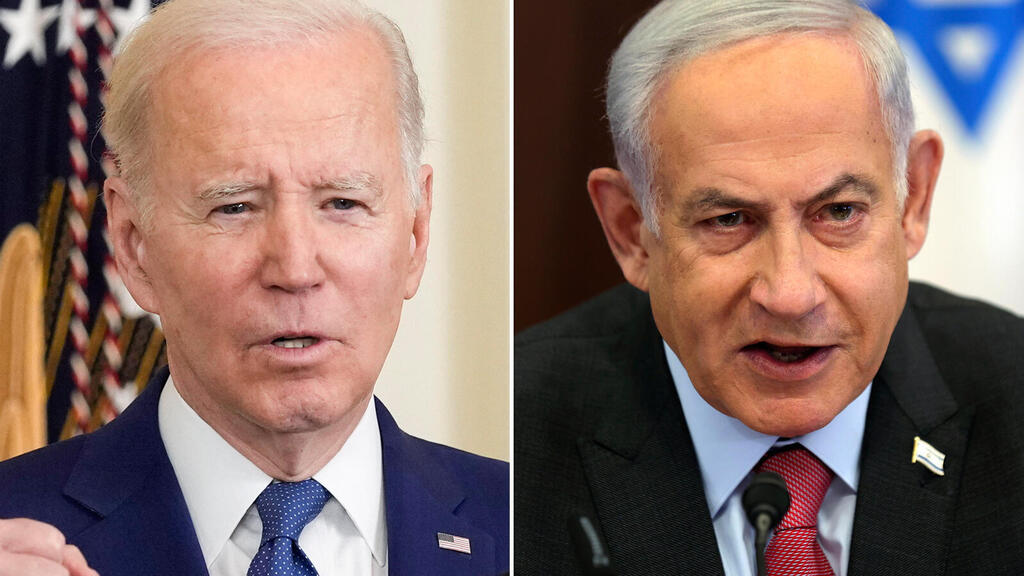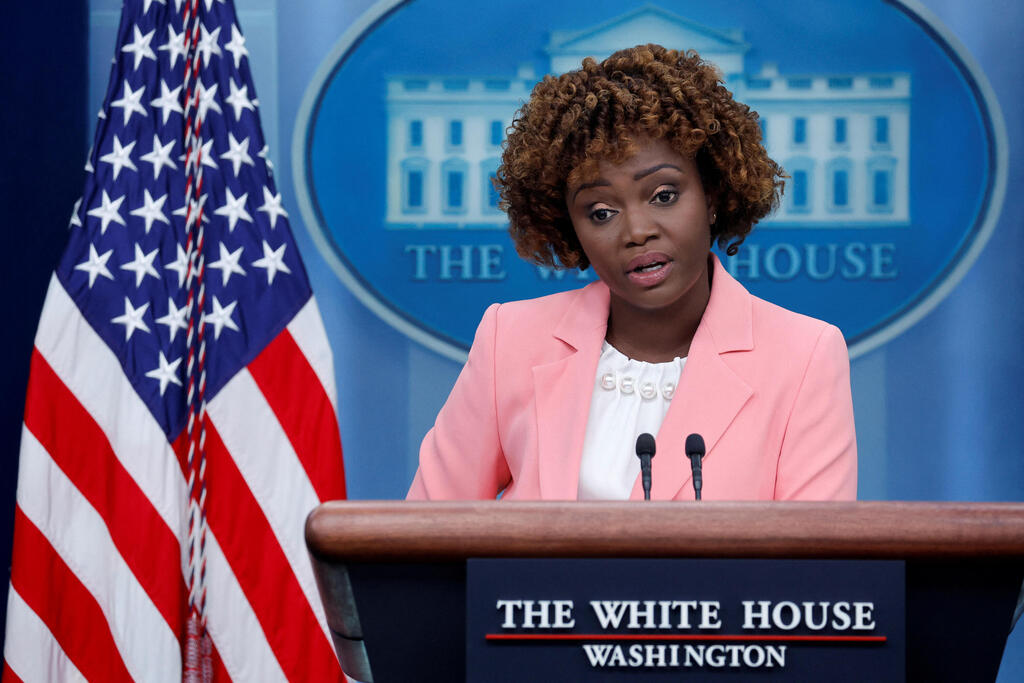Getting your Trinity Audio player ready...
Senior Biden administration officials said the one-sided legislation to curb the oversight powers of the Supreme Court passed on Monday would cause a further delay of weeks in arranging a meeting between U.S. President Joe Biden and Prime Minister Benjamin Netanyahu, a meeting that has not taken place since Netanyahu's return to power last December.
More stories:
But in an interview on Thursday with ABC's George Stephanopoulos, Netanyahu said he has been invited to the White House for a meeting "maybe in September," and that he is optimistic about the possibility for compromise against the backdrop of the judicial reform legislation, saying that "now that they see that we are ready to move forward without them, maybe we can move forward with them."
According to the officials, the administration does not trust Netanyahu, after he told Biden in their call a week and a half ago that he was trying to reach a broad agreement before his proposed bill comes up for a vote. Therefore, they said, this would likely affect the efforts being made to arrange a meeting of the two leaders.
After their call, the Prime Minister's Office said Biden invited Netanyahu for a meeting in Washington in September but the U.S. did not confirm that a meeting would take place in the White House, only that it would be in the fall, and the option of a meeting on the sidelines of the United Nations General Assembly in New York was raised as a possible venue.
David Makovsky, a senior researcher at the Washington Institute for Middle East Policy, said in a Twitter post that the chances of the NY meeting were less likely after the Knesset vote.
"Why? Unclear what POTUS will be getting from Netanyahu in re-halting more unilateral judicial legislation for a meeting?" read the post, which added that the U.S. was in no mood to do favors at present.
Meanwhile and in a baffling timing, the Prime Minister's Office posted a photograph of a meeting Netanyahu had on Wednesday with Cai Run, the Chinese ambassador to Israel, who presented the prime minister with an autographed copy of the book written by Chinese President Xi Jinping. The ambassador told Netanyahu that the leader appreciated the remarks, made in his own book, about Israel-China relations, and found them interesting and that Xi was looking forward to the two men meeting in Beijing, later in the year.
Biden did not hide his reservations over the judicial legislation advanced by Netanyahu and pressured him even in out-of-the-ordinary public comments to avoid unilateral steps and to reach a broad consensus for the dramatic changes the government - which the president described as the most extreme in memory - was seeking. On Sunday, ahead of the vote, the president urged the Israeli leader not to rush to legislate his overall judicial overhaul, which he described as divisive.
American officials told Reuters that the White House rejected attempts by Netanyahu's staff to secure an invitation to the White House out of concern for the independence of Israeli courts and over construction in West Bank settlements. In their first call in four months, Biden invited the prime minister to meet with him during 2023 but officials in Washington would not confirm the invitation was to the White House.
White House Press Secretary Karin Jean-Pierre was asked in her briefing on Wednesday, whether the president believed what Netanyahu said, but she refused to answer directly and only said they had a candid conversation. "They have a candid conversation to discuss their shared interest as well as their concerns. And that will continue," she said.
After the reasonableness law was passed on Monday, Jean-Pierre described it as unfortunate. "It is unfortunate that the vote today took place with the slimmest possible majority," she said. “We understand talks are ongoing and likely to continue over the coming weeks and months to forge a broader compromise even with the Knesset in recess. The United States will continue to support the efforts of President Herzog and other Israeli leaders as they seek to build a broader consensus through political dialogue.”




